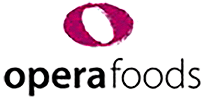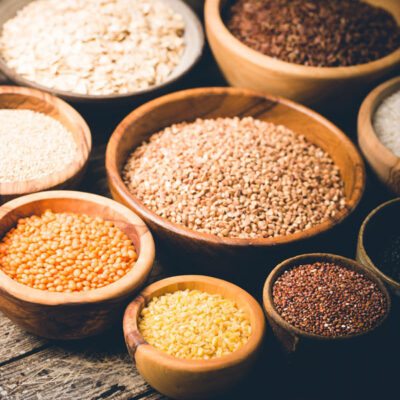Brands
Is Muesli Good for You?
By: admin On: 9 February 2024

How to choose a healthy muesli . Pay close attention to the sugar content.
It is a breakfast staple for many, but is muesli good for you? In this article, we explore the role that muesli can play as part of a healthy breakfast and why it can (but not always) be a nutritious choice. We'll also guide you on how to choose a healthy muesli and share some ideas for mixing it up a bit.
Let's start with the basics.
What is Muesli?
This may sound like a silly question, but if sugary cereals have always been more your thing, then you could be forgiven for misunderstanding muesli.
Muesli is a (potentially) wholesome, uncooked breakfast dish that first originated in Switzerland. It's typically made up of a base of rolled oats combined with various ingredients like dried fruits, seeds, and nuts. Some versions also include other grains, such as barley or rye flakes. Unlike granola, which is usually baked with sweeteners and oil, it is often eaten raw or soaked overnight in milk or yogurt.
There's also toasted muesli which, as the name suggests, is muesli that has been toasted. Not quite granola, it does however have a crisper texture and more baked flavours than the regular stuff.
What's muesli made of?
As we have seen, muesli is traditionally made from a base of rolled oats with other ingredients such as dried fruit and nuts added. But that's not the whole story.
Is muesli full of sugar?
It can be. Many commercial brands can contain as much as 20% sugar. Luckily there are plenty of options that are low or no sugar. Watch out for natural forms of sugar too. Whilst sweeteners such as honey and maple syrup are preferable from a nutritional standpoint, they should still be lower down the list of ingredients. It is probably best to stay away from artificial sweeteners too, as the evidence against them continues to grow.
Wholegrain Cereal for a Healthy Breakfast Option
A healthy breakfast is crucial as it kick-starts your metabolism and provides the energy needed to see you through the day. It helps regulate your blood sugar levels, keeping you satiated and preventing overeating later in the day.
Additionally, a nutritious breakfast that includes a balance of protein, fibre, and good fats can improve cognitive function, helping you to concentrate throughout the day.
So, starting your day with healthy breakfast cereals such as muesli could be a great way to ensure you're feeding your body right from the word go, and the first step towards a healthy diet. Read our article to find out more about why wholegrains are the heart of a healthy cereal.
The Benefits of Muesli
Is muesli healthier than oats?
It all depends. A traditional muesli made with oats will give you all the benefits of oats plus the additional nutrients of the fruit, nuts and seeds. But there are things to watch out for, as we will see later on.
The plus side
On the plus side, muesli is a great source of wholegrain fibre, vitamins and minerals.
Boosting your fibre intake comes with a host of health benefits. A fibre-rich diet aids digestion by adding bulk to the stool, helping prevent constipation and promoting regular bowel movements. Additionally, it can contribute to weight management by inducing a feeling of fullness, which can help curb overeating. Fibre can also play a crucial role in maintaining heart health by reducing levels of 'bad' LDL cholesterol, thereby reducing the risk of heart disease.
The unique soluble fibre in oats has been shown to have additional benefits such as improving insulin sensitivity, reducing inflammation and balancing gut microbiota.
It is also home to many essential vitamins and minerals, each contributing to various aspects of overall health. Packed with magnesium, iron, zinc, and B vitamins from whole grains, muesli aids in energy production and promotes a healthy nervous system.
The added nuts and seeds contribute healthy fats, as well as vitamin E, and selenium, which are known for their antioxidant properties and support for the immune system.
Dried fruits like raisins or apricots, are a good source of potassium and vitamin A.
However, it's important to note that the nutritional profile can vary greatly depending on the specific ingredients used in each blend.
The downsides
Despite its numerous health benefits, muesli does have a few downsides that are worth considering.
First and foremost, some muesli blends can be high in sugar, particularly those that contain added sugars or a high proportion of dried fruits. Consuming excessive amounts of sugar can lead to weight gain, tooth decay, and increased risk of various health issues such as heart disease and type 2 diabetes.
Secondly, some store-bought muesli mixes may contain high amounts of sodium, which could contribute to high blood pressure if consumed in excess.
Lastly, muesli is calorie-dense, meaning it can be easy to overdo it, which could potentially lead to weight gain if not portion-controlled. As with any food, even those with numerous health benefits, moderation is key.
How to Choose a Healthy Muesli
When choosing a healthy muesli, there are a few key aspects to consider.
Firstly, opt for a brand that uses whole grains as the base, as these are packed with fibre and keep you feeling full for longer. However, if you choose not to eat grains there are some excellent grain-free muesli options available.
Our crispy apple paleo is a great little grain-free muesli
Secondly, pay close attention to the sugar content. As mentioned earlier, some brands can contain up to 20% sugar, so aim for options that are low or no sugar. Natural sweeteners are preferable, but they should not be a primary ingredient.
Also, look for a muesli that includes a variety of nuts and seeds for added protein and healthy fats. Dried fruit does contain sugar, albeit in a more nutritious package, but a variety of fruits will offer a range of vitamins and minerals.
Finally, be wary of unnecessary additives or preservatives – the fewer ingredients, the better. Stick to these guidelines, and you'll be well on your way to choosing a nutritious, delicious bowl of muesli.
Our low sugar muesli varieties are made with no artificial preservatives, sweeteners or colours
What Can You Eat Muesli With?
Can I eat muesli without milk?
Whilst we wouldn't recommend a bowl of dry muesli for breakfast (nosebag, anyone?) there are alternatives to the old-school cereal/combo routine.
Ideas for what to eat with muesli
- Yogurt Parfait: Layer your muesli with Greek yogurt and fresh fruits for a nutritious and visually appealing breakfast option. You can also add a drizzle of honey or a sprinkle of chia seeds for extra flavour and nutrients.
- Smoothie Bowl: Blend your favourite fruits with a bit of almond milk or coconut water and top it off with a hearty sprinkle of muesli. It's a delicious, filling, and nutritious start to your day.
- Protein Shake: Top your protein shake with toasted muesli for a bit of extra crunch and a nutrient boost.
- Baked Goods: Use muesli in place of oats in your baking to add an extra dimension to your favourite baked goods. Think super easy muesli bars or flapjack. Or banana muffins maybe.
- With Plant-Based Milk: For a vegan option, try your muesli with almond milk, oat milk, or soy milk. You could also consider adding some fresh fruits or nuts on top.
- Quick Muesli Bars: Combine muesli with nut butter and honey, press into a pan, and let it set in the fridge. Cut them into bars for a quick and healthy snack on the go.
- Chocolate and Berries: For a decadent yet healthy dessert, mix your muesli with dark chocolate chunks and berries, then serve it with a dollop of whipped cream or Greek yogurt.
There are plenty of creative ways to enjoy muesli that go beyond the traditional milk and cereal combo. Whether you're looking for a nutritious breakfast, a filling snack, or a healthy dessert, muesli offers versatility and countless options to suit your dietary needs and preferences.
Explore our range of healthy cereals to buy online. Don't forget that you can buy in bulk and take advantage of wholesale discounts.






